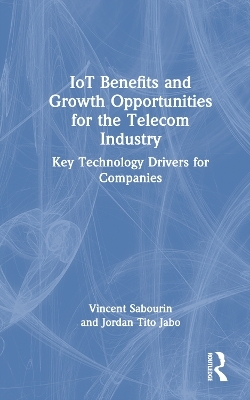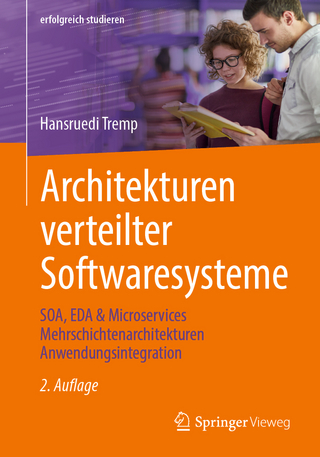
IoT Benefits and Growth Opportunities for the Telecom Industry
CRC Press (Verlag)
978-1-032-13314-0 (ISBN)
This critical and forward-looking book features:
An assessment of the impact of Internet of Things (IoT) on the telecom industry’s revenue streams
IoT-based business models in the telecom industry
A PESTLE (political, economic, socio-cultural, technological, legal, and environmental) analysis of the industry in relation to IoT
Key technological drivers.
It also features a case study of Bell Canada Enterprises (BCE) Inc., which highlights IoT-based business models in the industry. The study reveals that telecom operators have started implementing IoT projects, however, true revenue streams are yet to materialize. Ten IoT-based business models have been identified at BCE Inc. The book points out that operators do leverage existing infrastructure in terms of broadband fiber and mobile connectivity in part and resort to partnerships and acquisitions to acquire much-needed knowledge, technology, and smart devices. Concerning the effect of IoT on the telecoms’ revenue streams, it was revealed that new entrants, who are not necessarily in the telecom industry, have impacted the old players’ revenue streams. OTT services like YouTube, WhatsApp, IPTV, Netflix, are the biggest culprits. Seven key technological drivers for IoT have been identified and include widespread wireless connectivity, the availability and affordability of microcontrollers, sensors and actuators, the decreasing cost of bandwidth, the recent implementation of IPv6, and the ongoing development of 5G network, as well as the use of cloud computing and analytics.
Finally, the PESTLE analysis of the industry shows that the lack of a comprehensive political and regulatory framework still slows down IoT deployment. Interoperability, security, and privacy concerns are other constraints. Conversely, general economic conditions in most developed and developing economies are favorable to the advancement of IoT technology. Governments are willing to subsidize R&D and have partnered with the private sector to speed up the roll-out process.
Professor Vincent Sabourin is a full professor of business strategy and innovation management at the School of Management (ESG) of University of Quebec in Montreal (UQAM) where he teaches at various level of executive MBA’s including the MBA for Science and Engineering. He was the director of the project Promising Plastics for a Canadian Federation of Plastic Producers. He has been a keynote spear for several conferences for topic such as advanced Plastics, Smart technologies and Internet of Things. He was the founding director of the Department of strategy, social and environmental responsibility and has been a commissioner at the University’s Academic Affairs Commission. Dr Sabourin is the chairman of the Consortium Innovation, a nonprofit organization and a collaborative network in the area of innovation and management. As a strategy expert, he advises governments and businesses. He was one of 25 Canadian experts in strategic planning selected for a doctoral dissertation at HEC Montréal. He has been invited a distinguished speaker in international conferences such as the international Federation of Information Technology for Travel and Tourism (IFITTT) and at the Academy of Management of China. He has published several books, books chapters, academic articles and proceedings in the field of strategic management and tourism. Professor Sabourin holds a diploma in industrial psychology from University McGill, a master’s degree in administration from HEC Montreal and completed a doctorate (Ph.D.) in planning and strategic management at the University McGill, supervised by Henry Mintzberg. Jordan Tito Jabo is an information technologist with a decade of successful experience in supporting and managing information technology systems. He has also worked in academia. He is currently a contractor at IBM. Jordan Tito is certified in different technologies and management best practices including Oracle, Cisco, ITIL, and Agile. Jordan Tito holds M.B.A. and an M.Sc degrees, and he is an enthusiast of research and innovation in the areas of IoT, big data, artificial intelligence, business intelligence and business modeling.
1. Introduction and Challenges for the Telecom Industry 2. Internet of Things: Perspective and Opportunities for the Telecom Industry 3. Internet of Things in the Telecom Industry: A Survey of Transformation Trends 4. IoT New Business Models and the Digital Transformation of the Telecom Industry 5. A Case Study: Bell Canada Enterprises (BCE) Inc. 6. IoT And the Future of the Telecom Industry Appendix A: Application Markets for IoT
| Erscheinungsdatum | 06.07.2022 |
|---|---|
| Verlagsort | London |
| Sprache | englisch |
| Maße | 138 x 216 mm |
| Gewicht | 226 g |
| Themenwelt | Mathematik / Informatik ► Informatik ► Theorie / Studium |
| Informatik ► Weitere Themen ► Hardware | |
| Sozialwissenschaften ► Kommunikation / Medien ► Journalistik | |
| Wirtschaft | |
| ISBN-10 | 1-032-13314-7 / 1032133147 |
| ISBN-13 | 978-1-032-13314-0 / 9781032133140 |
| Zustand | Neuware |
| Informationen gemäß Produktsicherheitsverordnung (GPSR) | |
| Haben Sie eine Frage zum Produkt? |
aus dem Bereich


